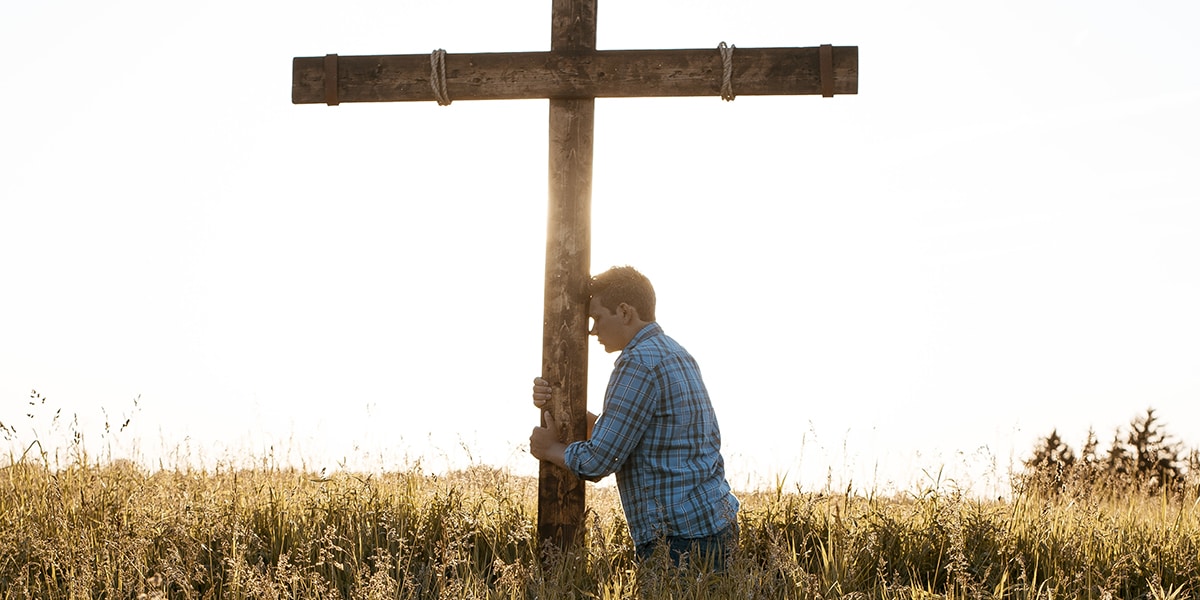Recently, several friends came to me, feeling guilty about situations that didn’t go the way they planned. I’ve felt the needling of a guilty conscience too, since God has blessed me with plenty of opportunities to make mistakes. I know how anxiety-provoking it can be. I’m a physician; I’ve seen patients die unexpectedly in the emergency department and been surprised by chronic illnesses in the office that didn’t improve as I anticipated. I’m also a wife and mother. I felt guilty when my husband fell off the wagon of sobriety or one of my kids got in trouble at school.
It’s easy to become paralyzed and overwhelmed by voices shouting in our heads: “It’s all your fault!” or “If only you had done things differently!” Sometimes those voices are appropriate, but other times we struggle with guilt over things that aren’t our fault. How do we weed out the erroneous self-reproach to find the circumstances where true responsibility exists? How do we listen for and identify God’s voice above all the noise?
Over the years, I’ve worked out a plan to quiet those critical voices. After I ask myself the four questions below, I pray with the Bible to open my ears and heart for God’s answers.
Is the problem really mine?
One year, my newly licensed teenager hit another car in a parking lot. No one was around, and she didn’t think any damage had been done, so she simply left and forgot all about it. It turns out there was damage done to the other car, and a witness wrote down both license plate numbers. An hour later a police officer showed up at our door.
I was mortified. Hadn’t I taught her what to do if an accident occurred? Was I a bad driving teacher or a bad mom? I felt guilty for a week afterward until my daughter finally said, “Mom, this is my fault, not yours. Let it go!”
Feeling guilty because I can’t control someone else’s actions is a mistake. People have the right to make their own decisions, whether it’s my husband’s alcohol intake or my daughter’s driving habits. I can’t control anyone’s choices but my own, and I have no business trying. How can people learn from their mistakes or feel God’s help if I am always getting in the way? Don’t we all get annoyed when other people express unsolicited advice? If it’s not mine, I need to let it go. And if I let others fix their own mistakes, I have more time to fix my own.
Did I do my best?
This is the time for an honest self-assessment. Was I too distracted? Too careless? Or worse, too selfish? Not long ago, one of my patients took an unexpected health turn and ended up in the hospital over Thanksgiving. I felt terrible and went back through his medical chart trying to find some clue I had missed. I looked over his meds and his recent test results, and, even armed with the knowledge of his current sickness, I couldn’t predict his sudden decline.
I had to accept the fact that I had done my best, and there was nothing else I could have done to change the situation. I still felt sad my patient missed Thanksgiving at home, but I gave up the guilt. If I do my best, and things don’t go as I planned, I can trust that God has the situation under control. God knows better than I do how things should turn out, and his plans are always better than mine.
I don’t need to understand his purposes to trust them. If I did my best, God’s got the rest.
Is there a way I can fix it now?
I sat on the phone with one of my daughters, half listening and half looking at my to-do list. “Uh-huh,” I said as I considered the litter box and my cleaning schedule. “Oh, really?” I muttered as I wrote two more things on the grocery list. “Mhhmm,” I mumbled as I tried to figure out if I had enough gas in the car to run the day’s errands. “Mom,” she said, “so what should I do?” I told her, “Oh, I’m sure you’ll figure something out, honey. I’ll talk to you later, OK?”
Later that day, I stopped dead in my tracks, frozen in the realization that I had not been listening. I had been looking at the list, planning and figuring, and completely missed what my daughter shared. I felt my face flush a bit as the shame rolled over me.
I called her right then. What a horrible moment it was as I confessed not knowing what she had said. What a blessing it was as she forgave me and started the whole story over again.
Once we realize we’ve made a mistake, feeling guilty is not the only action to pursue. We need to determine a way to correct the situation if possible. This is a good time for prayer, for God loves to help us fix what we’ve messed up. He also provides the strength to right our wrongs.
Can I call a patient and provide a more compassionate explanation to her questions? Can I apologize to the family member I offended or take my neglected dog on an extra walk in the neighborhood?
Can I learn from it?
Some years ago, I made comments that deeply offended a friend. I apologized, but the damage was irreparable. Although we still see each other occasionally, we are not as close as we once were. We can’t always fix our mistakes, but we can learn from them.
Whether it be with a patient, family member, pet, or stranger, how can I keep from making the same errors over and over? Do I need more sleep? Do I need to trust God more? Do I need to learn to control my temper or deepen my generosity? This kind of evaluation helps me to avoid repeating the same mistakes in the future and stretches me to become a better person.
This four-question system isn’t perfect, but it does help when the anxious, guilt-provoking voices start screaming in my head. When I finish my review, I give the whole process to God, who says: “Do not fear: I am with you; do not be anxious: I am your God. I will strengthen you, I will help you, I will uphold you with my victorious right hand” (Is 41:10). I ask God to forgive what I’ve done wrong and to fix whatever I’ve missed. Amen!
Scripture Passages for Inner Peace
Our faith can help us understand situations in which we might have misplaced feelings of guilt. We can turn to Scripture for insight and help.
Is this my problem?
“Why do you notice the splinter in your brother’s eye, but do not perceive the wooden beam in your own eye?” (Mt 7:3).
Did I do my best?
“We know that all things work for good for those who love God, who are called according to his purpose” (Rom 8:28).
How can I fix i?
“God did not give us a spirit of cowardice but rather of power and love and self-control” (2 Tm 1:7).
What can I learn from it?
“Rejoice in hope, endure in affliction, persevere in prayer” (Rom 12:12).
This first appeared in St. Anthony Messenger.









1 thought on “Easing a Guilty Conscience”
I’m guilty of adultery and have 2 kids out of wedlock
Comments are closed.